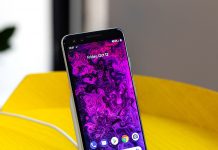BBC Washington – Apple
has audaciously released that encrypted data on innovative and brand
new iPhones cannot be accessed, even by Apple, although the firm could in presumption
lend a hand to security operatives to effortlessly unlock older phones.
has audaciously released that encrypted data on innovative and brand
new iPhones cannot be accessed, even by Apple, although the firm could in presumption
lend a hand to security operatives to effortlessly unlock older phones.
Furthermore, the annotations
came in an update filed on Monday to a US judge who seemingly requested for
Apple’s participation in a case. According to close source, A US Department of
Justice appeal has tried to force the company to assist prosecutors admittance
a detained iPhone.
According to Apple,
experimentally speaking, without renunciation, 90 percent of its devices
running iOS 8 or higher can’t be unlocked.
experimentally speaking, without renunciation, 90 percent of its devices
running iOS 8 or higher can’t be unlocked.
The phone that is the topic of the justice department’s
request is an older device, but Apple has so far resisted unlocking it for powers
that be.
“Forcing Apple to extract data in this case, absent clear
legal authority to do so, could or may
apparently intimidate and worsen the trust between Apple and its customers and significantly
smudge the Apple brand,” the company said in its briefing. US magistrate Judge
James Orenstein, of Brooklyn in New York, has programmed/scheduled a hearing
for Thursday despite the fact that it is not obvious whether an Apple delegate
will be present.
looking at it critically, in order to decrypt the data on
newer devices, the encryption key – known only to the user – would have to be
entered. Meanwhile, Apple chief executive Tim Cook has told an audience in California
that the company does not allow intelligence agencies to access data via “back
doors” in its software.
“We think encryption is a must in today’s world,” said Mr
Cook, speaking at the Wall Street Journal’s WSJDLive conference. “No-one should
have to decide privacy or security. We should be smart enough to do both.” The
data encrypting services that come with the latest smartphone and computer
operating systems can only be unlocked when a specific key is used, according
to Dr Joss Wright of the Oxford Internet Institute.
“Apple may perhaps supply the device and system but if they
don’t have that key they’re not able to unlock it any more than the US state
department,” he told the BBC. He added that law enforcement agencies often
found themselves attempting to circumvent this problem. This can be done by
getting the user to voluntarily give up the key or by installing malware on the
user’s phone that snoops on the key as it is typed in.
“The central part encryption is as close to indestructible as
you can get,” he said. “The point is you don’t try to break the encryption, you
break the software – you try to get the password from the user’s computer so
you can unlock it.” In another privacy-conscious step, Apple also recently
removed more than 250 apps from the app store which used Chinese advertising
software to extract personally identifiable information about users.
Photo credit: nation.com.pk





